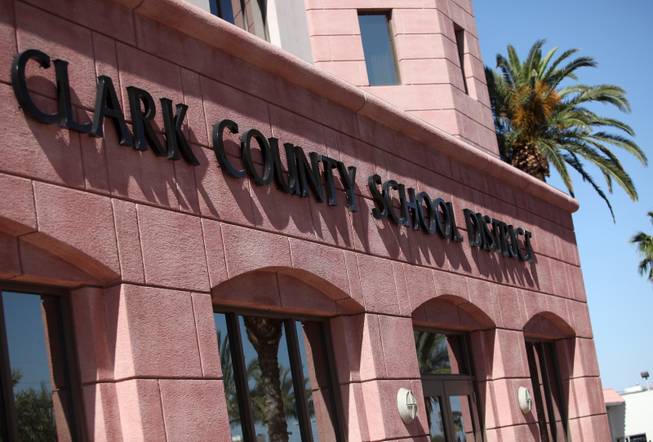
The Clark County School District offices are shown in Las Vegas in May 2009.
Thursday, Feb. 15, 2024 | 6:05 p.m.
The Southern Nevada Health District announced today that no additional active cases of tuberculosis were found following a December case in the Clark County School District.
A person who had undiagnosed active TB disease visited multiple school district campuses in December while sick, prompting the SNHD to investigate at various sites. The patient had minimal close contact with people at most of the campuses they visited, but students and staff at Ruthe Deskin Elementary School in the northwest valley were identified as having potential exposure, the health district said.
More than 550 students and staff members have been tested for TB infection with no additional active cases of TB being reported.
The Centers for Disease Control and Prevention said TB is caused by the Mycobacterium tuberculosis bacterium and usually attacks the lungs but can also target other parts of the body such as the kidney, spine and brain. It spreads from one person to another through the air when an infected person coughs, speaks or sings.
Symptoms of TB develop based on where the bacteria grows inside the body. For example, TB disease in the lungs may lead to symptoms like a bad cough lasting three weeks or longer, pain in the chest or coughing up blood or sputum — phlegm from deep inside the lungs, according to the CDC.
Other symptoms include weakness or fatigue, weight loss, no appetite, chills, fever and sweating at night.
Anyone can develop TB, but people with weak immune systems — especially those with HIV infection — have a higher risk of developing TB, the CDC said.
However, not everyone infected with TB bacteria becomes sick, and people who have latent TB infection have no signs or symptoms of the disease, so they cannot spread it to others.
“The Southern Nevada Health District remains committed to conducting immediate and thorough investigations of all known active TB cases as they are reported, with the goal of identifying individuals at risk of exposure,” the SNHD said in a press release. “The Health District offers treatment for those people who are exposed and found to have a TB infection to prevent the development of active TB disease and avoid future exposures to active TB cases in the community.”
The SNHD sent out notifications to all individuals identified as close contacts of the infected patient. The health district encourages people who received the message and have additional questions about the investigation to call its information line at (702) 759-4636 or (866) 767-5038 on Monday through Friday from 8 a.m. to 4:30 p.m.
